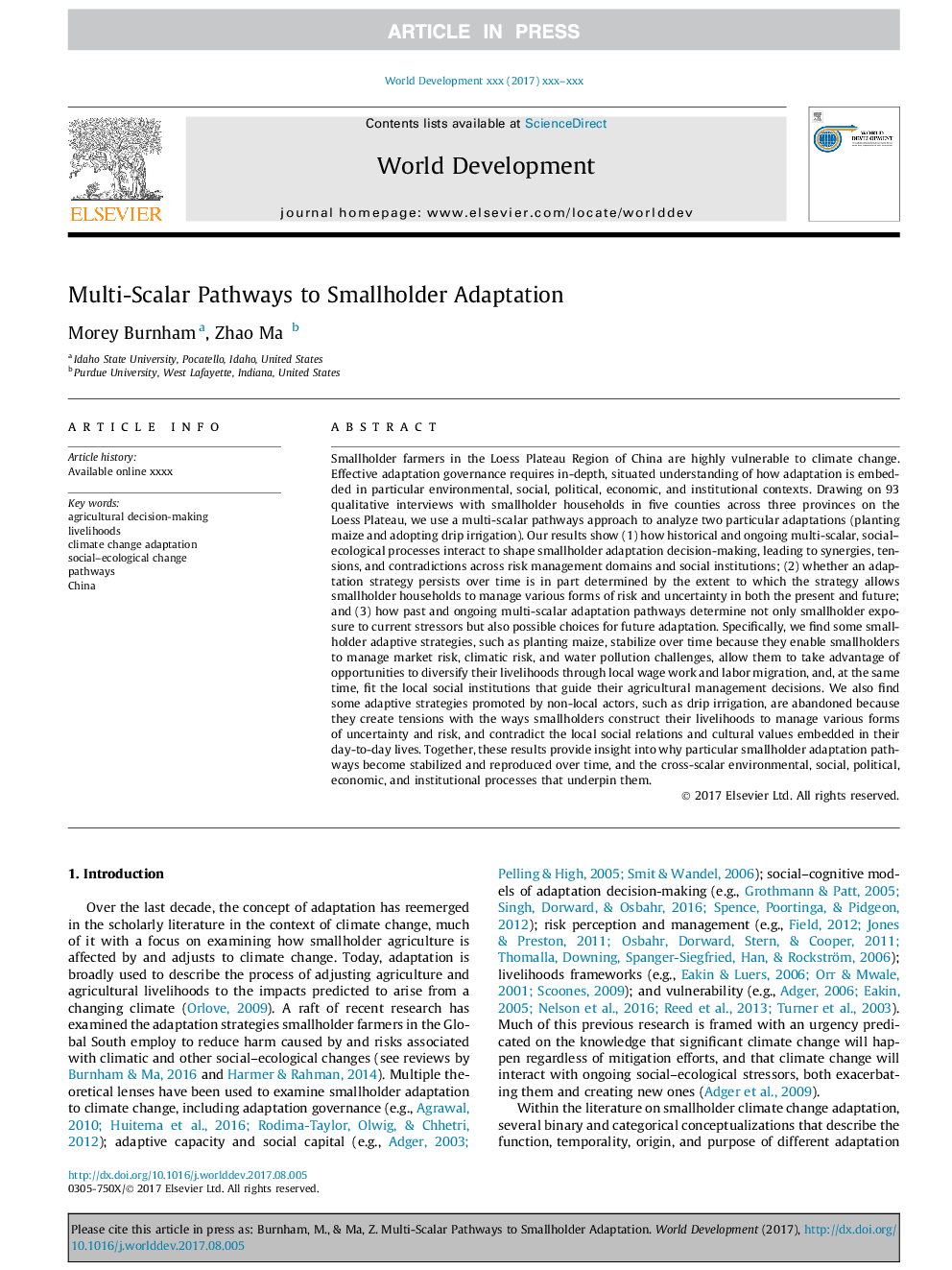| Article ID | Journal | Published Year | Pages | File Type |
|---|---|---|---|---|
| 7391589 | World Development | 2018 | 14 Pages |
Abstract
Smallholder farmers in the Loess Plateau Region of China are highly vulnerable to climate change. Effective adaptation governance requires in-depth, situated understanding of how adaptation is embedded in particular environmental, social, political, economic, and institutional contexts. Drawing on 93 qualitative interviews with smallholder households in five counties across three provinces on the Loess Plateau, we use a multi-scalar pathways approach to analyze two particular adaptations (planting maize and adopting drip irrigation). Our results show (1) how historical and ongoing multi-scalar, social-ecological processes interact to shape smallholder adaptation decision-making, leading to synergies, tensions, and contradictions across risk management domains and social institutions; (2) whether an adaptation strategy persists over time is in part determined by the extent to which the strategy allows smallholder households to manage various forms of risk and uncertainty in both the present and future; and (3) how past and ongoing multi-scalar adaptation pathways determine not only smallholder exposure to current stressors but also possible choices for future adaptation. Specifically, we find some smallholder adaptive strategies, such as planting maize, stabilize over time because they enable smallholders to manage market risk, climatic risk, and water pollution challenges, allow them to take advantage of opportunities to diversify their livelihoods through local wage work and labor migration, and, at the same time, fit the local social institutions that guide their agricultural management decisions. We also find some adaptive strategies promoted by non-local actors, such as drip irrigation, are abandoned because they create tensions with the ways smallholders construct their livelihoods to manage various forms of uncertainty and risk, and contradict the local social relations and cultural values embedded in their day-to-day lives. Together, these results provide insight into why particular smallholder adaptation pathways become stabilized and reproduced over time, and the cross-scalar environmental, social, political, economic, and institutional processes that underpin them.
Related Topics
Social Sciences and Humanities
Economics, Econometrics and Finance
Economics and Econometrics
Authors
Morey Burnham, Zhao Ma,
